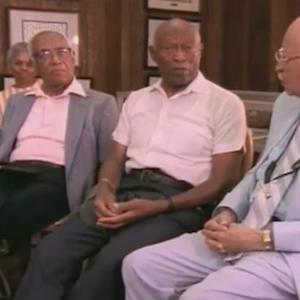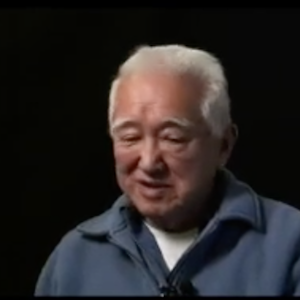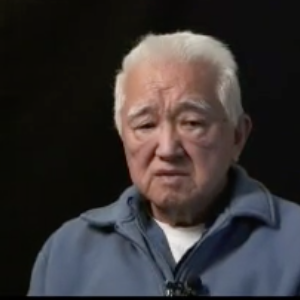Government

Delaware School Alumni Interviews
In 1954, the Supreme Court declared the "separate but equal" doctrine unconstitutional in Brown vs. the Board of Education of Topeka. Years earlier, however, Pierre S. du Pont, President of E.I. du Pont de Nemours & Co.

Howard High School Alumni Interviews, Wilmington, Delaware
Howard High School, the only free high school for African Americans in Delaware until the 1950s, was built shortly after the Civil War. In this clip, interviewees describe the obstacles former students faced, such as traveling long distances each day on foot or by milk train.

Carlisle Indian School Students
The photograph shows buildings and students of the Carlisle Indian Industrial School around 1900. Attended by over 12,000 Native American children from more than 140 tribes between 1879 and 1918, the school was the model for nearly 150 Indian schools. Its founder was U.S.

Japanese American Incarceration at Minidoka, Idaho, Interview
May K. Sasaki is a Nisei (2nd generation) Japanese American. She was born Kimiko May Nakamura in 1937 in Seattle. Her parents ran a small grocery store in Nihonmachi (Japantown).

Japanese American Incarceration at Merced Assembly Center, California, Interview
(Yoshimitsu) Bob Fuchigami is a Nisei (second generation) Japanese American, born in 1930 in Marysville, California. His family operated a farm prior to World War II.

Japanese American Incarceration at Amache, Colorado, Interview
(Yoshimitsu) Bob Fuchigami is a Nisei (2nd generation) Japanese American, born in 1930 in Marysville, California. His family operated a farm prior to World War II.

Japanese American Incarceration at Amache, Colorado, Interview
Norman I. Hirose is a Nisei (second generation) Japanese American born in 1926 in Oakland, California. He grew up in Oakland and Berkeley, California.

Japanese American Incarceration at Manzanar, California, Interview
Aiko Herzig-Yoshinaga is a Nisei (second generation) Japanese American born in 1925 in Los Angeles. She was incarcerated at Manzanar, California, and later Jerome and Rohwer, Arkansas.

Japanese American Incarceration at Heart Mountain Interview
Mits Koshiyama is a Nisei (second generation) Japanese American born in 1924 in Mountain View, California. He grew up in the Santa Clara Valley, working on his family's leased strawberry farm.

Japanese American Incarceration, Interview
Kenge Kobayashi is a Nisei (second generation) Japanese American born in 1926 in Imperial Valley, California. With his family, he was incarcerated at Tulare Assembly Center, California, and then at the Gila River, Arizona, and Tule Lake, California, incarceration camps.